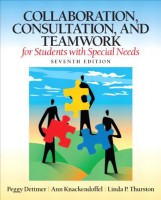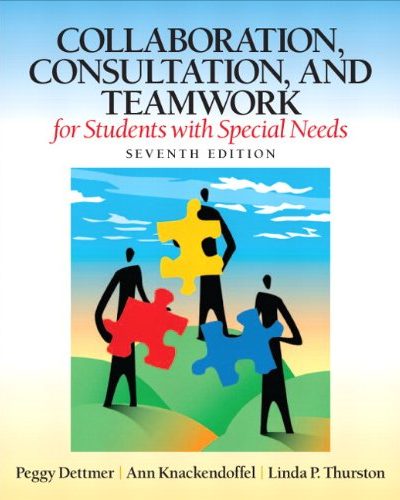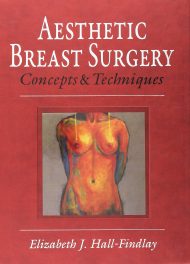 Authors: Peggy Dettmer, PhD; Ann Knackendoffel, PhD; and Linda P. Thurston, PhD
Authors: Peggy Dettmer, PhD; Ann Knackendoffel, PhD; and Linda P. Thurston, PhD
Publisher: Pearson – 462 pages
Book Review by: Sonu Chandiram
The focus of this book is on the who, what, when, where, why, and how of helping students in America’s elementary and high schools – that have special challenges and needs- learn better and become productive members of society.
This book aims to show teachers how they can help special needs students acquire skills such as:
- Communicating and collaborating with others
- Evaluating their own work for accountability purposes
- Identifying problems and solving them
- Knowing how to learn new things
- Listening, speaking, and writing effectively
- Recognizing and caring about the needs of others
- Thinking critically and creatively
- Using technology effectively
This is a large list of goals to accomplish, given that people who need such help have inherent difficulties in gaining new knowledge and acquiring new abilities and skills, and practicing those skills to develop ease in doing the tasks listed above.
Recognizing this challenge, the authors of this book, who have extensive and intensive knowledge in this special area of educational psychology, and many years of training in it, particularly as it relates to special-needs students, have developed this special book focused on this group of learners in our schools.
As a result, they offer this book with 15 chapters, to you the teacher or researcher, coverage of a wide range of subjects relating to challenged students. And in it they share their insight on how best to help those students overcome their difficulties.
Below is an overview of the contents of this book based on its five Parts:
- Contexts for Working Together as Co-Educators
- Content for Working Together as Co-Educators
- Processes for Working Together as Co-Educators
- Practices for Working Together as Co-Educators
- Support for Working Together as Co-Educators
A lot of the material has been updated in this the seventh edition of this book. The authors point out that textbook revisions are often necessary, and sometimes required, when they relate to special education, because of new findings or changes such as:
- Altered goals of funding agencies
- Expanded roles of school employees
- Increased public attention to education
- Involvement of families and communities in educational issues
- New legislation
- Professional development programs
- Research
This is a rare and special book directed to a special group of students. It is broad in coverage yet incisive in dealing with each issue relating to special needs students with the use of collaboration, consultation and teamwork. The authors named below have done a marvelous job.
Authors:
Peggy Dettmer is a professor emeritus of Education at Kansas State University, where she earned an MS in Special Education and a PhD in Educational Psychology. She chaired the Educational Psychology and Counseling Department and directed the College of Education honors program for several years.
Her 42 years of teaching experience was divided somehow evenly between K-8 public schools and the teacher education program at Kansas State University, where her areas of emphasis were educational psychology, assessment for effective teaching, education of gifted and talented students, collaborative school consultation, creativity, and professional development. She has written a number of books and articles for refereed journals and conducted many professional development activities on these topics.
Dr. Dettmer chaired the Professional Development Division for the National Association of Gifted Children (NAGC) and participated in the creation of NAGC gifted program standards. Her main areas of professional interest include the constructive use of adult differences and providing responsive environments to nurture creativity in children and youth.
Ann Knockendoffel is an assistant professor in Special Education at Kansas State University She earned a PhD in that field at KSU. Her interest in collaboration and consulting began with her dissertation research in collaboration between general educators and special educators, and it continued with co-authoring a book on collaborative problem solving.
Dr. Knackendoffel has been a teacher at both elementary and secondary levels and a special educator for children with intellectual and learning disabilities as well as students with emotional and behavior disorders. She currently teaches a graduate-level course in consultation and collaboration for special educators at KSU and has conducted numerous workshops and conference presentations on collaborative school consultation.
She also teaches courses for general education majors focusing on students with special needs, academic intervention techniques for them, and assistive technology. Her particular interests are in collaborative problem solving, and the utilization and supervision of paraeducators.
Linda F. Thurston, professor and assistant dean at Kansas State University, earned an MA in Experimental Psychology at the University of Texas in El Paso and a PhD in Behavioral Science from the University of Kansas.
In addition to teaching graduate courses in program evaluation, women and leadership, and special education, she is the founding director of the Office of Educational Innovation and Evaluation and the first coordinator of the new facility mentoring program in KSU’s College of Education. Thurston has published and taught in the areas of disabilities, gender, family, and poverty issues, as well as evaluation.
She has been principal investigator on more than $10 million in external funding related to those areas. Thurston served as a program officer in the Education and Human Resources Directorate at the National Science Foundation for several years.







